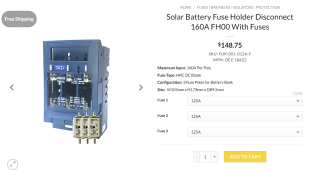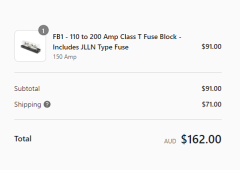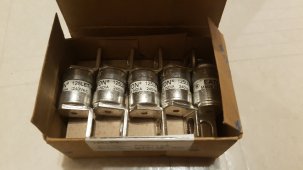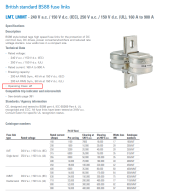Hi,
I live in Australia and there is no choice here for class T fuses except the blue sea systems ones starting from 225A.
My solar system consists of Deye 5kw inverter + 280ah x 16 CATL cell battery. I'm looking to buy a proper fuse. According to my research 225A from blue sea systems is a bit too high for my system.
In Australia, most people seem to be using these NH/FH00 style fuses, and it's pretty affordable when considering I can get the following with 3 included 125A fuses. (125A because these fuses seem to be slow blow style) - https://www.solamart.com.au/product/battery-fuse-holder-disconnect-160a-fh00-with-fuses/

Should I get one of the above or pay more to get a single 150A JLLN Class T fuse from shunts.com?

No UL conformity is needed.
Thanks in advance
I live in Australia and there is no choice here for class T fuses except the blue sea systems ones starting from 225A.
My solar system consists of Deye 5kw inverter + 280ah x 16 CATL cell battery. I'm looking to buy a proper fuse. According to my research 225A from blue sea systems is a bit too high for my system.
In Australia, most people seem to be using these NH/FH00 style fuses, and it's pretty affordable when considering I can get the following with 3 included 125A fuses. (125A because these fuses seem to be slow blow style) - https://www.solamart.com.au/product/battery-fuse-holder-disconnect-160a-fh00-with-fuses/

Should I get one of the above or pay more to get a single 150A JLLN Class T fuse from shunts.com?

No UL conformity is needed.
Thanks in advance






